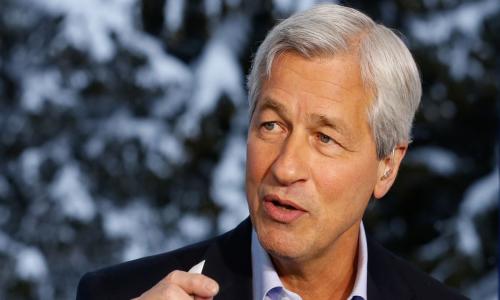Jamie Dimon, JP Morgan Chase’s CEO and Tufts alumnus, appearing this morning on Bloomberg from Paris said that the largest regional banks with which he speaks are all in good financial shape. They, however, are exposed to the sudden and instant messaging through Twitter or other forums from hedge fund gurus who - by casting aspersions and having front run a large short position - can easily create a bank run and put them out of business. In order to prevent this, Dimon said that the US government and SEC need to act immediately to ban short-selling of banks and to impose strict penalties for violations.
The Bloomberg interview, which is quite good, is here.
While I am ordinarily not a fan of interfering with the free market and limiting short selling, temporary impositions on short-selling have been used around the world at times of extreme volatility to calm the markets.
It is also clear that short-sellers played a significant role – with some benefitting tremendously and the government’s (taxpayer’s) expense – in the quick demise of Silicon Valley Bank.
Against the backdrop of the debt ceiling, banks are still considered at risk due to their interest rate exposure, even after the US Treasury and Janet Yellen have created extraordinary backstop measures. Hedge funds, in many cases, are now so large and powerful and could continue to use social media to instantly take down midsize and large banks. Extaordinary times call for extraordinary measures. Dimon therefore is correct that – albeit an extreme measure – banning short selling of banks has become a proper way to protect banks.
Additionally, I want to address some of the theories being circulated on social media that the US banking system can do fine with far fewer banks and credit unions than it has. Europe and Japan with far fewer banks are often cited as examples here.
The reality is that the US financial system is far more vigorous and robust than any other due to its many different players each vying to fill a niche is certain markets. Especially now, small and medium sized banks are necessary to fill the void that has caused the US to fall behind much of Europe in solar and wind energy. Chase, Citibank, Wells Fargo and others all have extraordinary exposure to the carbon industry and cannot reasonably be expected to lead the necessary (and now cost-effective) transformation of our economy to a carbon-free one.









Add your Comment
use your Google account
or use your BestCashCow account